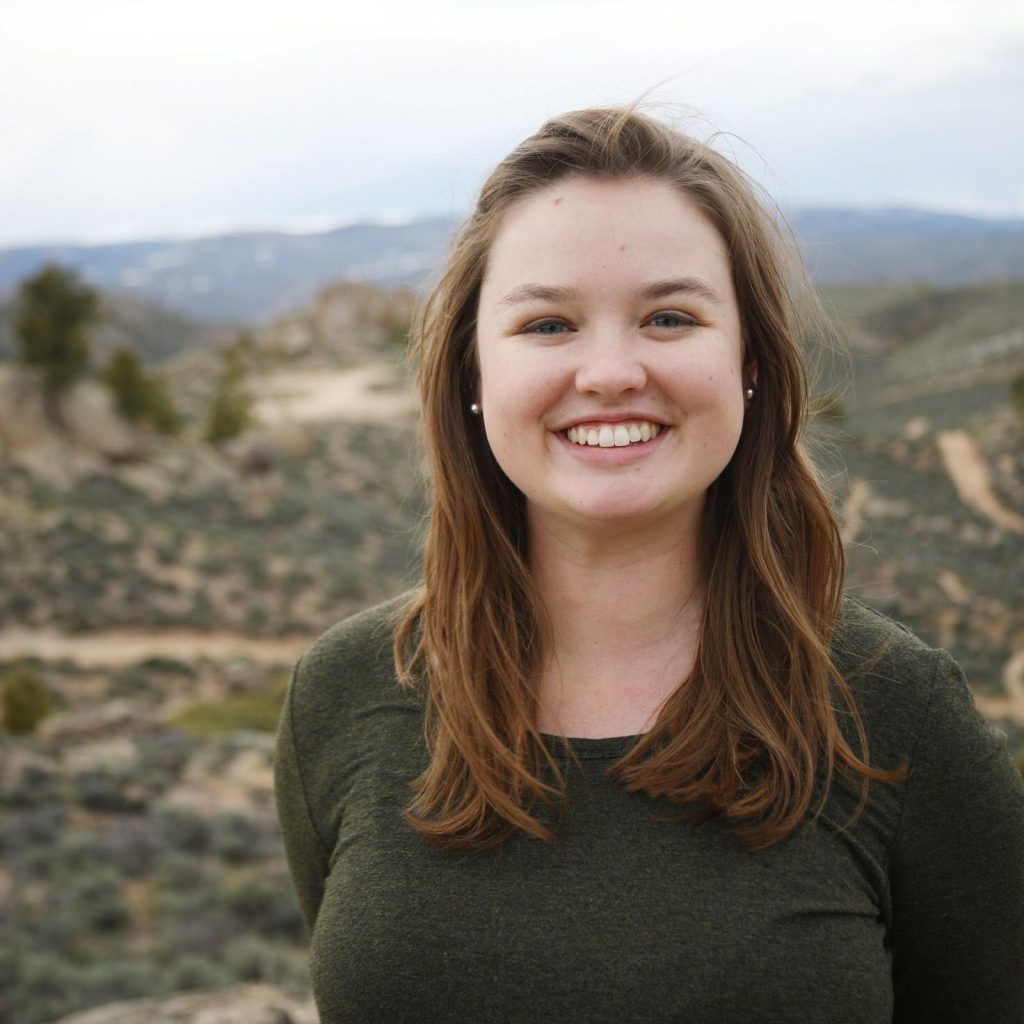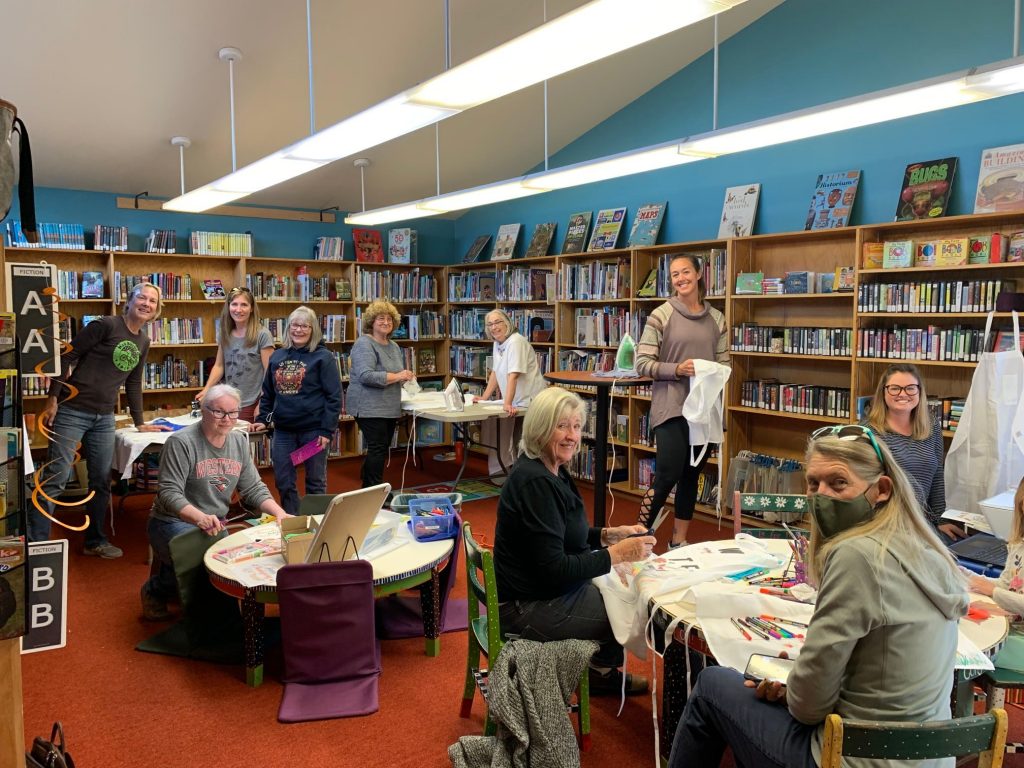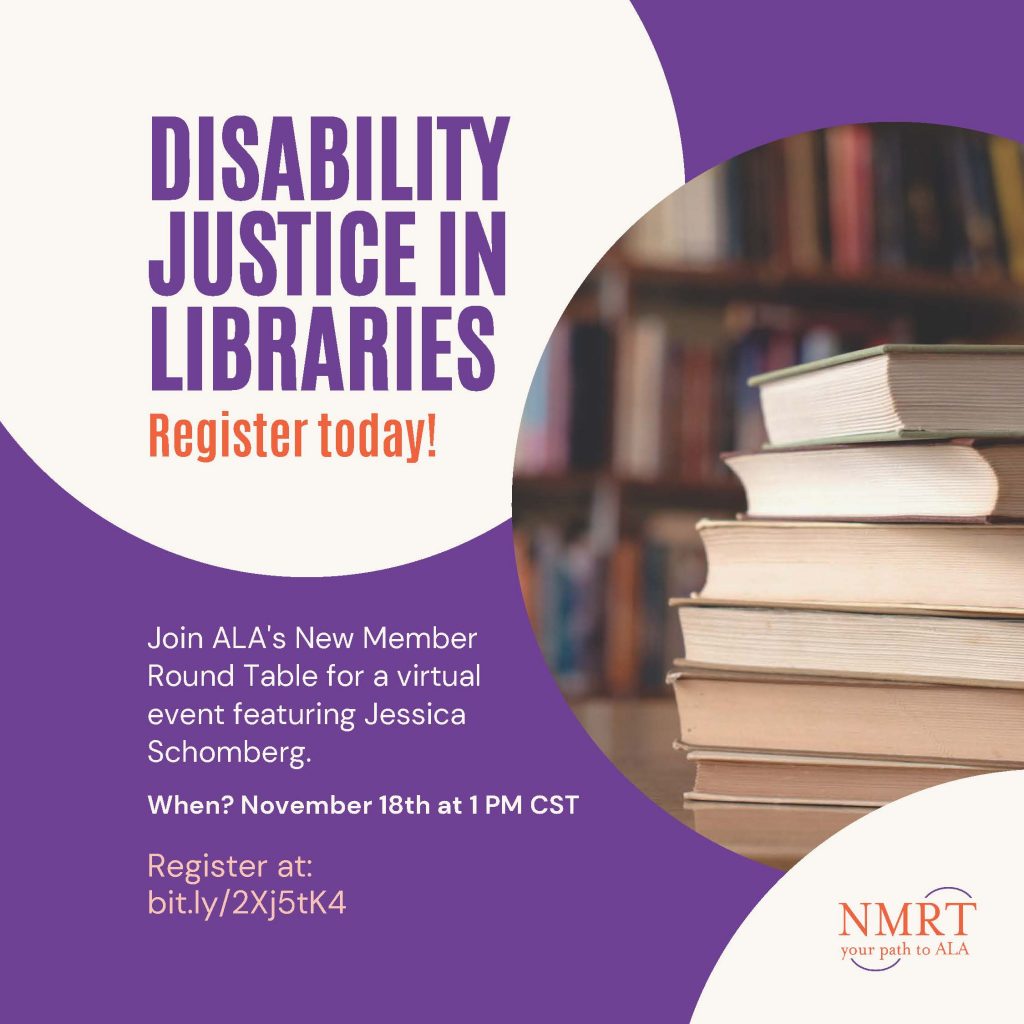
Email: taylor@gunnisoncountylibraries.org
Institution/Location of Institution: Gunnison County Library District (Colorado)
Job Title: Marketing & Adult Programming Coordinator
Brief Job Description:
In true small library style, I have a range of responsibilities. From working the circulation desk to hosting community events to advertising our many library services and collections. I’m a paraprofessional and first-semester MLS graduate student at Emporia State University. I do both full time and travel between two branches in our district, Gunnison and Crested Butte, which are in the same mountain valley, 30 miles apart. If I had to sum up how I spend my days in one word it would be: communicating. I love interacting and serving members of the public and making them aware of everything our library has to offer them.
What are some things you like about your job or about working in libraries in general?
It sounds cliché but every day I learn something new and I love learning! Working in libraries has enriched my life greatly by introducing me to so many new ideas, experiences and people. I had no idea how much I enjoyed spending time with others until I started this job. As a natural introvert, this came as quite the surprise to me. My library experience has pushed me out of my comfort zone continuously and has facilitated so much personal and professional growth.
If you’re a library student, what’s your dream library job?
Instruction / Outreach Librarian in an Academic Library, preferably a community college.
What’s a project or committee you’re working on right now that you’re excited about?
In graduate school and as something I hope to incorporate into our library resources at work too, I’m developing an online Pathfinder for mental health information in our valley. Since the start of the pandemic, like many places, our local emergency services has seen a dramatic increase in the number of admits to the emergency room due to behavioral issues. This is something that is affecting our community deeply and my goal is to provide clear, accessible information about consumer health sources and how to seek help locally. My goal is to continue to help de-stigmatize mental health and caring for yourself.
What got you interested in libraries?
If I have to be completely honest, I was initially drawn to it through my love of reading. I was a big library user growing up and I wanted to work in an environment that surrounds you with books. As I started to pursue jumping into the field seriously, I learned that libraries are so much more than that. Don’t get me wrong, I still believe in the magic of books and here in our library at least, it’s still our primary mission to connect readers. On top of that though, libraries foster so many connections and they constantly introduce people to new ideas.
What is one of your favorite things about NMRT?
By becoming a part of ALA and NMRT this fall when I started graduate school and could tap into a student membership, I immediately utilized the mentorship program. I was paired with someone who has a long, diverse history in many types of libraries, holding many different positions. This has allowed me to soak up so much wisdom and learn from his experience. It’s been incredibly beneficial for me to learn from others in the field.
Do you have any advice for other new librarians?
I only started working in libraries 3 years ago so I perhaps shouldn’t be doling out advice for those new to the field, but if I had to I’d say that it’s important for you to take care of yourself. This field is amazing and it’s easy to put your heart and soul into because the work is so rewarding but make sure you take care of yourself along the way. Hopefully you’re starting a career that will be full of many adventures through the years so remember that life is long and you’re never going to finish everything you want to. There’s always more things to try and to do in libraries!



